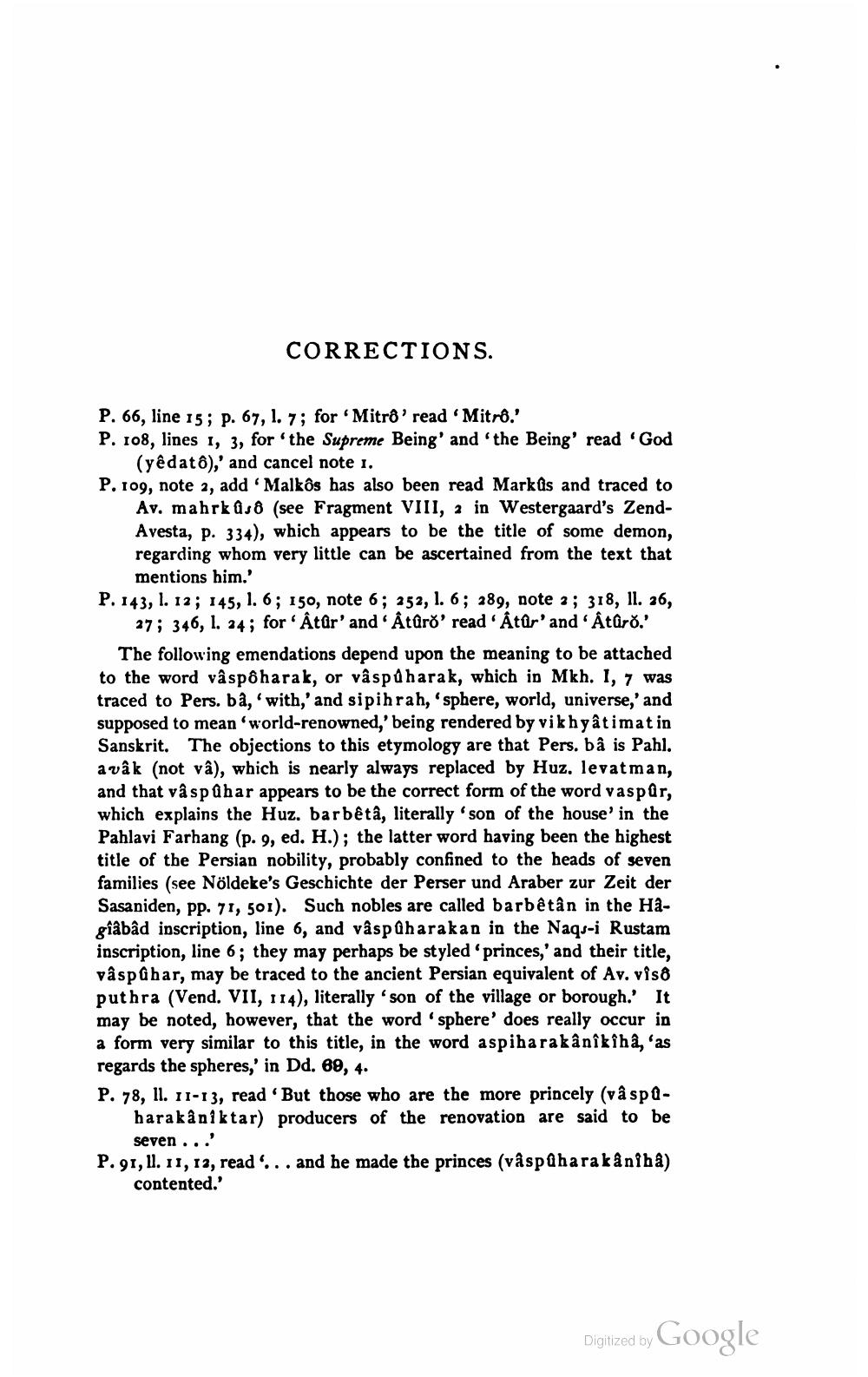________________
CORRECTIONS.
P. 66, line 15; p. 67, 1. 7; for 'Mitro' read 'Mitro.' P. 108, lines 1, 3, for the Supreme Being' and 'the Being' read 'God
(yêdato),' and cancel note 1. P. 109, note 2, add "Malkôs has also been read Markûs and traced to
Av. mahrkus 8 (see Fragment VIII, 2 in Westergaard's ZendAvesta, p. 334), which appears to be the title of some demon, regarding whom very little can be ascertained from the text that
mentions him.' P. 143, l. 12; 145, 1. 6; 150, note 6; 252, 1. 6; 289, note 2; 318, 11. 26,
27; 346, I. 24; for 'Atür' and 'Atūrð' read 'Atür' and 'AtQro.' The following emendations depend upon the meaning to be attached to the word vâspoharak, or vâspů harak, which in Mkh. I, 7 was traced to Pers. bå, with,' and sipihrah, sphere, world, universe,' and supposed to mean world-renowned,' being rendered by vik hyâtimatin Sanskrit. The objections to this etymology are that Pers. bâ is Pahl. avâk (not vâ), which is nearly always replaced by Huz, levatman, and that va spühar appears to be the correct form of the word vaspur, which explains the Huz. barbêtâ, literally son of the house in the Pahlavi Farhang (p. 9, ed. H.); the latter word having been the highest title of the Persian nobility, probably confined to the heads of seven families (see Nöldeke's Geschichte der Perser und Araber zur Zeit der Sasaniden, pp. 71, 501). Such nobles are called barbêtân in the Hagiâbâd inscription, line 6, and vâspiharakan in the Naqs-i Rustam inscription, line 6; they may perhaps be styled 'princes,' and their title, vâspühar, may be traced to the ancient Persian equivalent of Av. viso puthra (Vend. VII, 114), literally 'son of the village or borough. It may be noted, however, that the word 'sphere' does really occur in a form very similar to this title, in the word aspiharakânîkîha, 'as regards the spheres,' in Dd. 69, 4. P. 78, 11. 11-13, read But those who are the more princely (vâ spa
haraka niktar) producers of the renovation are said to be
seven ...' P. 91, 11. 11, 12, read... and he made the princes (vâspoharak aniha)
contented.'
Digitized by Google




